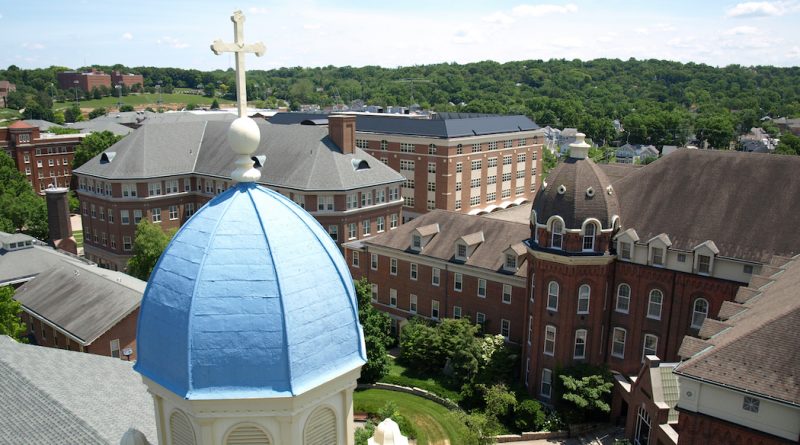UD Discusses Faith and Politics in 2016 Election
By: Sean Newhouse – Staff Writer
In my experience with Catholic education (kindergarten to the present), a discussion of faith and politics meant the school chaplain or a religion teacher would not so subtly lecture the class that we had to support the candidate against abortion. If we didn’t, we were marked for eternal damnation with Lucifer.
It’s college now, and the topic has become more complex. On Tuesday, Oct. 11 in Sears Recital Hall, a diverse faculty panel of six experts discussed the topical subject of faith and politics. The program was sponsored by the Center for Social Concern and the political science and religious studies departments garnered many interested student attendees.
Issues of faith have become integral to this year’s tense election. There is an open seat on the Supreme Court, and the jurist who fills that seat will likely influence the future of religious freedom, pro-life issues, same-sex marriage, and illegal immigration. At the Vice Presidential debate, moderator Elaine Quijano asked, “Can you discuss in detail a time when you struggled to balance your personal faith and a public policy position?”
The event was structured to allow each panelist a few minutes to argue their point, which was then followed by questions from the audience after all had spoken. Ironically, they began on the right side of the panel table and generally became more conservative the farther left they were seated.
Dr. Miller, the Gudorf Chair in Catholic Theology and Culture, began by saying, “I’m so sorry to you that this is your first election.” He then went on to explain how racial issues have become more overt than covert this election, suggested reading Pope Francis’ address to Congress, and argued that Catholics fall on both sides of the American political dichotomy, which only adds to the complexity of the issue.
The second panelist was Dr. Salih, assistant professor of religious studies specializing in Islam. He gave the general theological view that voting keeps governments accountable and that all faiths strive for some form of social and economic justice. He emphasized that voting is a public duty, regardless of affiliation, and is necessary for minority voters to be taken seriously.
Dr. DeAnda, assistant professor of religious studies and the sole woman on the panel, gave five ways of being an informed voter: listening to someone else’s opinion, being educated on Latino/minority laws, considering gender bias, reading fact-check websites, and actually voting. She stressed that even though some did not get the presidential candidate they wanted, like Sanders supporters, it is still important to vote because of local and state elections, which hold a lot of influence.
Former Governor Taft followed Dr. DeAnda. Although a Republican, he admitted that he was not a Trump supporter. He spoke about how he thought freedom of religion is interpreted contemporarily with too much emphasis on the separation of church and state and not enough on the right to express one’s religion publicly. He also stated his belief that candidates and voters should consult their faith when making decisions and that religion is beneficial in society.
Dr. Carter, associate professor of history, followed Gov. Taft. He said he considers his Catholic faith to be like his party and believes the prime issue this election to be the defense of human life, especially the unborn. He referenced early apostolic writings stating Christian must live the way of life and support it from conception to natural death, regardless of the circumstances.
The last speaker was Dr. Ambrosius, assistant professor of political science and the self-described “token evangelical” on the panel. Ambrosius discussed his internal conflict between idealism and realism regarding his political beliefs.
He stressed voting with selflessness and stated his belief that Christian teachings could be found across the whole spectrum of political ideologies. He also gave strong notions that although he has a history with the Republican Party, he is voting for Clinton this election.
Questions were then fielded from the audience, and the faculty panel continued to give conflicting answers. The only real conclusion taken from this panel seemed to be that faith and politics are complex issues, and thus the reason all these intelligent people arrive at very different conclusions regarding the topic.
Sophomore Corinne Woodruff summed it up well by saying, “I took away [from the panel] that faith plays different roles for different people when it comes to politics. For some, it shapes their morals which shape their views. However, it can be a gray area in the world of bipartisanship.”
Photo Courtesy of udayton.edu

